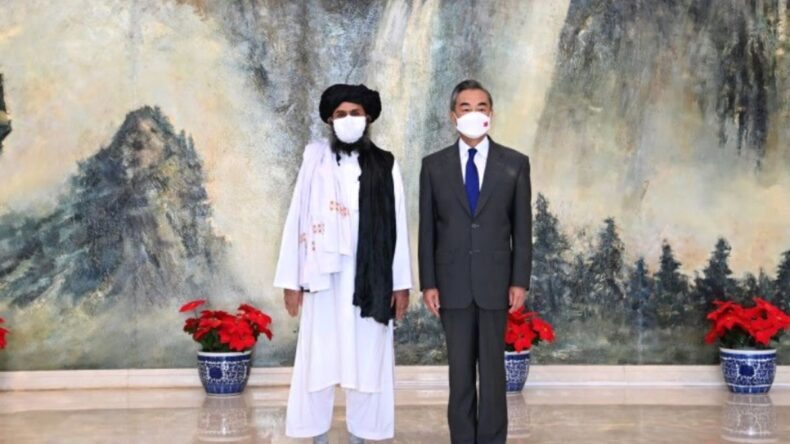Chinese and Afghan governments signed the first Memorandum of Understanding of the Belt and Road Initiative in 2016.
The previous Ghani Government’s distrust of Pakistan and China’s scepticism regarding the spillover of militancy into their territory prevented both the parties from developing and expanding the deal.
But the recent manoeuvring of both Chinese and Taliban heads in the press prove that they are about to join hands-on China’s Belt and Road Initiative.
China is one of the first few countries in the world to acknowledge its willingness to deal with the Taliban after its lightning recapture of Afghanistan on August 15.
Afghanistan is a strategic location in South Asia for China in its ambitious Belt and Road Initiative (BRI), which explains China’s bonhomie attitude towards establishing a diplomatic relationship with the Taliban. But what does Afghanistan stand to gain in the interaction?
BRI or One Belt One Road Initiative
China’s multibillion-dollar project of establishing and developing global infrastructure in 70 countries spread across Southeast Asia, South Asia and Africa, was inaugurated by Xi Jinping in 2013 during his diplomatic visit to Kazakhstan.
The project aims to integrate trade routes and global markets by addressing the “infrastructure gap”. China does this through investments in roads, railways, ports, energy plants and tunnels.
Criticized by countries like the USA as China’s attempt to establish its dominance in the global market, it aims to achieve target completion in 2049.
China and the Ghani Government
China’s limited investments in Afghanistan during Ashraf Ghani’s rule resulted from the country’s concern about the China Pakistan Economic Corridor (CPEC).
Afghanistan was and still is very crucial for its strategic location in China’s ambitious project. But the country’s unstable political climate resulting from the incompetency of the corrupt and weak US-backed government and the potential for militant insurgencies prevented China from focusing too much on Afghanistan.
Stability in the neighbouring countries to protect Chinese assets in the CPEC motivated the country to maintain diplomatic relations with both Pakistan and Afghanistan. The security concern even led to Chinese officials mediating the peace process between the Taliban and the government.
What changes with the Taliban coming into power?
Now that the Taliban is in power, China is accelerating its efforts in the country. Along with Russia, Iran and Pakistan, it aims to fill the political vacuum left by the US withdrawal.
Moreover, the Taliban’s relations with the Imran Khan government assure China of protecting its assets. China is also interested in the mineral reserves of the country.
All of this together leads the country to extend camaraderie to the Taliban, even though hesitantly.
Afghanistan’s gains
Taliban regards China as its “most important partner”, according to its spokesperson Zabiullah Mujahid. China is crucial for serving political, economic and humanitarian purposes in Afghanistan.
The Taliban’s first and foremost concern is political legitimacy in the international arena. China’s interest in diplomatic relations is a way to international recognition for the militant outfit.
Even though China has invited them to form diplomatic relations, the offer is conditional.
It will depend upon the Taliban’s willingness to create an “inclusive, moderate government”. Additionally, they will have to maintain a conducive environment for Chinese investments and offer protection to Chinese assets.
This legitimacy, even though provisional, will bring a sense of stability and normalcy to the region.
Decades of war and climate change disasters in the form of droughts, etc., have ravaged the Afghan economy surviving on foreign financial aid. Due to the Taliban’s takeover, many countries cut their assistance to the country.
UN Chief Antonio Guterres warned the world of an impending “humanitarian catastrophe” in the country owing to the “economic crises” and the threat of the “complete collapse of basic services”.
China’s promise to increase its humanitarian aid to the war-torn country will mitigate this problem to a large extent in the global context where other countries have cut their financial support.
But Afghanistan cannot survive on foreign aid forever. China’s interest in Afghanistan for the BRI will result in infrastructure development and investments in the country.
China has already shown interest in Afghanistan’s coal and rare metal reserves. China’s investments will help the government to build a self-sufficient economy in the long run.













